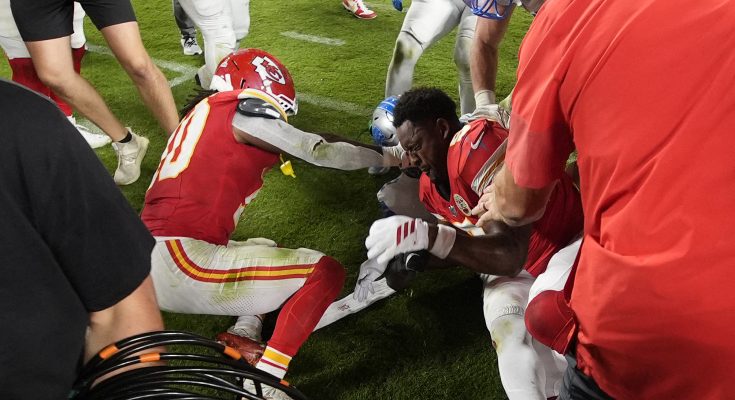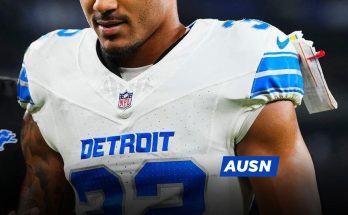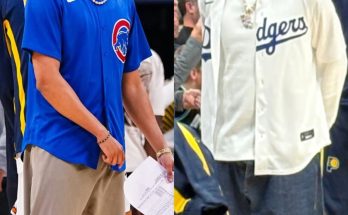Late in the fourth quarter, Brian Branch publicly claimed that JuJu Smith‑Schuster “blocked in the back illegally,” attributing his post‑game outburst to that perceived foul. Branch’s exact language was: “I got blocked in the back illegally. And it was in front of the ref and the ref didn’t do anything. … I could’ve gotten hurt off of that.” (NBC Sports) In defending his conduct after the brawl, he argued that the lack of a call on what he believed was a dangerous, off‑angle hit left him frustrated, feeling disrespected, and ultimately provoked him to act out after the game. (NFL.com)
To understand the legitimacy and context of Branch’s claim, one must examine several layers: the rule itself (what constitutes a legal versus illegal block in the back), the circumstances under which such a block might be called (or missed), the particular game situation and sightlines, and the broader emotional and competitive dynamics that often drive post‑game reactions.
First, under NFL rules, a “block in the back” is generally considered an illegal action: when an offensive player delivers contact to a defender from behind above the waist (and outside the permissible zones) in a way that risks injury or unfair advantage, a penalty (often 10 yards) can be assessed. Thus, on paper, Branch’s assertion is plausible: blocking a defender from behind is among the fouls officials are instructed to watch for. But in practice, many such hits are missed, especially when they occur quickly, in traffic, or at awkward angles.
It’s also important to note that there are exceptions and gray areas. Some blocks that might appear from behind are allowed if they occur within the “close-line play area” (near the line of scrimmage) or within certain sectors where offensive linemen or eligible blockers are permitted. Observers on social media have argued that this particular block may have taken place in such a zone, which could render it legal (or at least not flaggable under that interpretation). (Reddit) In fact, one Reddit user noted: “Block in the back is not a foul if it occurs in close-line play (between the tackle spots and within 3 yards of LOS, before ball has left that area). This is pretty close to close-line play … they just missed it” (Reddit). That contention suggests that even if Branch believed he was fouled, it might have been borderline within what referees allow.
Even if the block was technically illegal, another question is whether the official had a clear view and reasonable opportunity to call it. Branch contended the action happened “in front of the ref,” yet the official “didn’t do anything.” That suggests Branch believed the foul was blatant enough to be obvious and worth calling. But in the real flow of the game, officials are occupied with watching multiple players, anticipating movement, and often constrained by angle, obstructed sightlines, or other visual impediments. Missed calls happen frequently in fast-paced plays. And many players on both sides often grumble about “things in between the whistle” that go unnoticed or unflagged. Branch’s remark, “I’m tired of people doing stuff in between plays and refs don’t catch it,” captures a sentiment common in the NFL—that certain borderline or off‑angle aggression goes unpunished and breeds frustration. (NBC Sports)
In the particular game context, the block reportedly came “late in the fourth quarter,” which amplifies tensions. At that stage, bodies are fatigued, margins are thin, tempers fray, every small edge matters, and players may be more sensitive to contact they perceive as dirty or unfair. When Branch felt the hit was illegal—and saw no flag—the combination of adrenaline, competitive drive, and the sting of feeling overlooked or victimized may have pushed him beyond restraint. He later admitted his reaction was “childish,” acknowledging he should have “handled it between the whistles, not after the game.” (NBC Sports)
From JuJu Smith‑Schuster’s perspective, he contested that the block was illegal. He framed his action as part of his role: “Me just blocking him, just doing my job … I play between the whistles” (WGFX-FM). He and supporters might argue the contact was incidental or borderline—within the tolerances of a live game—or that it lacked the clear, rear-facing angle or force to merit a flag. Because players must constantly adjust to defenders, some contact in dynamic situations is inevitable, and not every bump or shove can or should be penalized.
And in media reports, some commentators echoed skepticism of Branch’s framing. One article from OutKick stated bluntly: “Let’s be honest. Smith‑Schuster did indeed block Branch in the back in the fourth quarter. It is indeed an illegal block” (though that reflects opinion more than official adjudication). (OutKick) Meanwhile, in coverage by NBC Sports, Branch’s claim is reported but without independent verification; the article frames it as his explanation for the fight rather than a definitive foul. (NBC Sports)
It’s also relevant to consider that Branch has a history of fines for skirmishes and unsportsmanlike hits—he’s been disciplined multiple times across seasons. (NFL.com) That track record may influence how his protest is received: critics might view his claim of being wronged as a post hoc justification rather than a genuine grievance. Conversely, supporters might see his anger as partly justified by unpunished rough play, lending legitimacy to his frustration.
Additionally, the league’s disciplinary response to the postgame fight reinforces how seriously such conduct is judged regardless of provocation. The NFL suspended Branch for one game without pay, calling his action “aggressive, non-football act … entirely unwarranted … violat[ing] the standards of conduct and sportsmanship expected of NFL players.” (The Sun) That decision suggests the league prioritized upholding decorum and discipline over fully validating the initial claim of an illegal block.
Ultimately, whether Branch was correct to say JuJu “blocked in the back illegally” cannot be resolved definitively without access to replay footage, angle-by-angle review, and official officiating review. The claim lies in a gray zone where player belief, split‑second contact, and referees’ judgment converge. But Branch’s emotional reaction—escalating to a postgame assault—went beyond the bounds of acceptable on-field conduct, and the league’s response underscores that even if there was provocation, retaliatory violence is not tolerated.
In the final analysis, Branch’s claim may carry some merit: blocking in the back is a recognized foul, and his assertion that it went unseen is plausible in the chaotic environment of a game. At the same time, the possibility exists that the block was borderline legal, or that the referee lacked a clear view, or that the contact was too subtle to merit intervention. Either way, the incident illustrates how emotions, perceived injustices, and the pressures of a close game can lead to regrettable action—and how the rules of restraint and sportsmanship remain paramount, even under duress. If you like, I can dig up the replay video or angles of that specific play and we can analyze whether Branch’s claim holds up under scrutiny.



